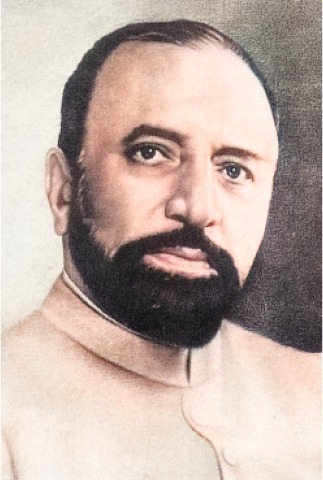In Pakistan Movement, where politicians, political workers, Ulama and people from other walks of life played dynamic role, some prominent businessmen also took part in the Pakistan Movement. Among those was Sir Abdullah Haroon, a renowned business entrepreneur who was born in 1872 at Karachi. He lost his father in early age and was brought up by his mother – a pious and a gifted lady – who took keen interest in molding the abilities of her son towards a great goal. The life of Abdullah Haroon popularly known as ‘Sugar King’ was full of industry and commitment. He established himself in the business class that was occupied by Hindus, solely due to his personal abilities. Being an able organizer, he was the only Sindhi Muslim leader, who made an impact on the politics of the Subcontinent with a vision of the problems of Sindhi Muslims and concern for the larger Muslim community.
He started his political career as a member of National Congress in 1917. He was closely associated with the Khilafat Movement as President of the Sind Provincial Khilafat Committee for five years (1919-1924). Later he was elected as the President of the All India Central Khilafat Committee in 1928. In 1923 he got seat in the Bombay Legislative Council and in 1926 in the Indian Legislative Assembly, which he retained for sixteen years till his death in 1942. He was prominent among many Muslim leaders in the All India Muslim Conference, which was set up to counter the Nehru Report in 1929. In 1930 he was elected President of all-India Tanzim Conference in Allahabad, and in 1931 of all India Post and RMS Union. He also presided all India Memon Conference in 1935 and then all India Seerat Conference Allahabad in1942. The most important service he performed was to organize the First Sind Provincial Muslim League Conference at Karachi in 1938. A year later he was elected as President of the Sind Provincial Muslim League and Chairman of All India Muslim League Foreign Subcommittee. He played a prominent role in the separation of Sind from Bombay being the Secretary of Financial Inquiry Committee (1930-35), member of Sind Administrative Committee (1933) and Sind Delimitation Committee (1935). He also chaired the second Sind Azad Conference (1934), which was established to counter the Hindu propaganda against the separation of Sind from Bombay.
He was a distinguished philanthropist and established several institutions, which provided services to the poor like ‘Islamia Orphanage School for Boys’ and ‘Cutchi Memon Madarasa-e-Benat for Girls’. The British Government gave him the title of ‘Sir’ in 1937.
Sir Abdullah Haroon took his last breath on April 27, 1942.
This article was last updated on Monday, Jan 01, 2007






